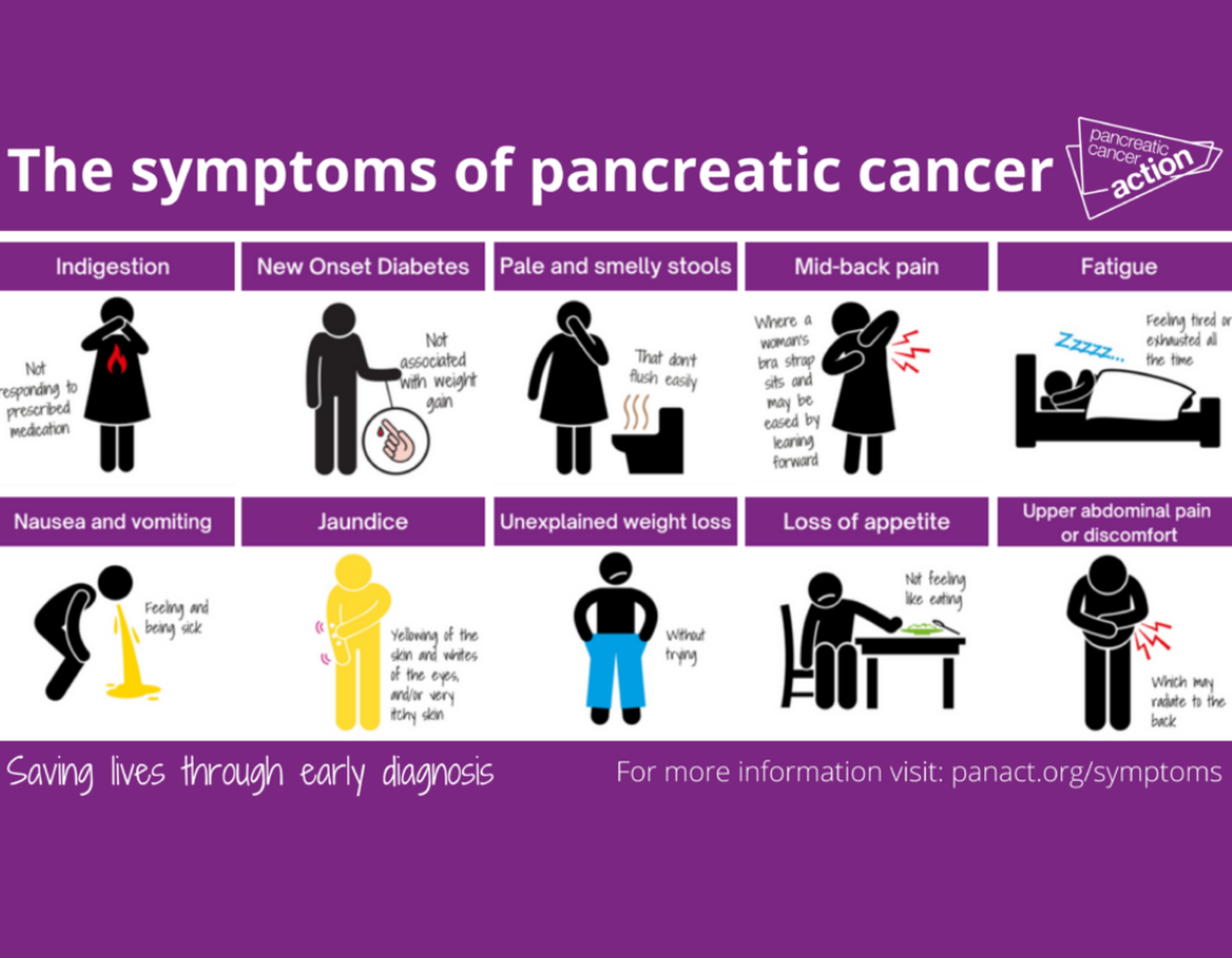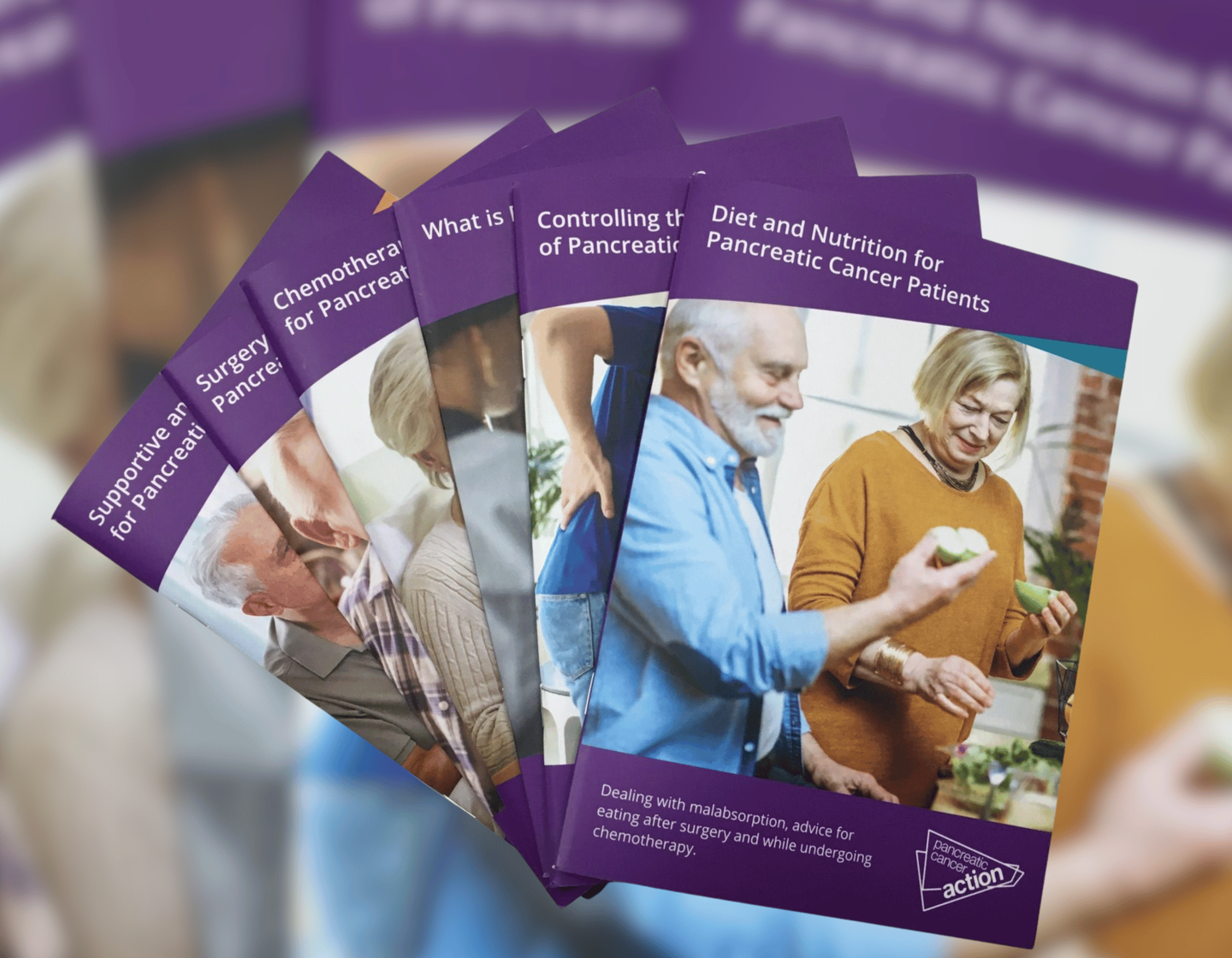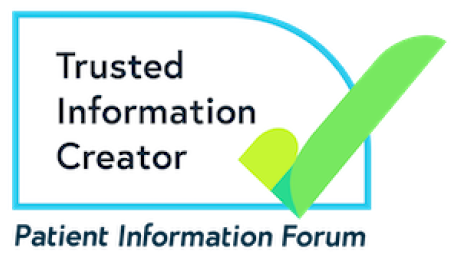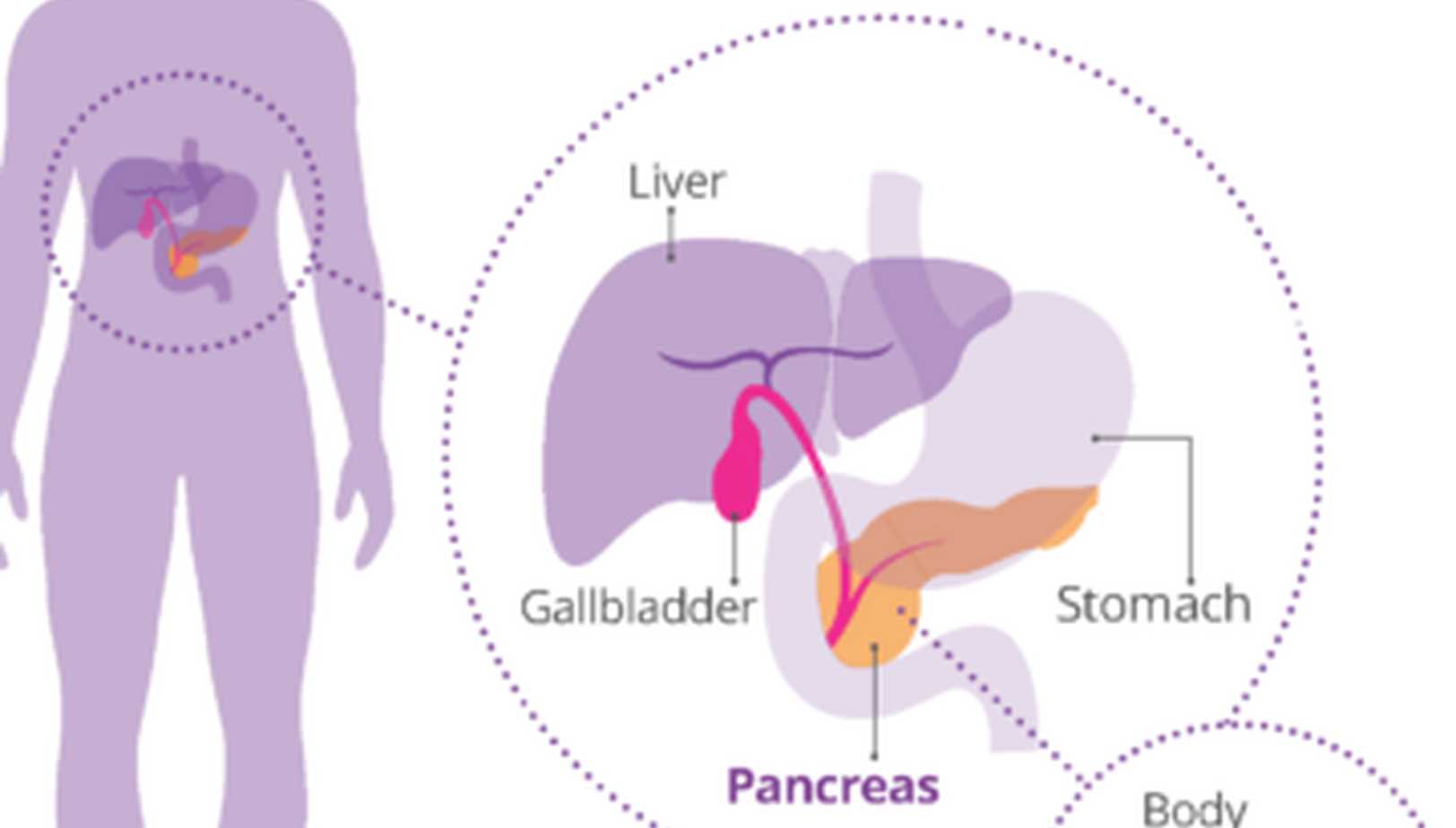Why we focus on early diagnosis
Why we focus on early diagnosis
At Pancreatic Cancer Action, we believe that early diagnosis of pancreatic cancer is possible for everyone. We continue to work towards ensuring that the public and healthcare professionals have the knowledge and tools they need to make early diagnosis a reality.
Early diagnosis of pancreatic cancer is important because if it can be diagnosed and treated at an early stage, before it has spread or grown too large, then survival rates for patients are significantly better.
Pancreatic cancer has the lowest survival rate of any of the common cancers. Currently, only around 10-20% of pancreatic cancer patients are diagnosed at an early stage and in time for potentially life-saving surgery. However, if surgery is an option, then it increases the patient’s 5-year survival from 7.3% to around 29%.
Pancreatic Cancer Action envisages a day where everyone is diagnosed in the early stages of their disease and has the best chance for a longer, better quality of life.
What is Pancreatic Cancer Action doing to increase early diagnosis?
Early diagnosis in pancreatic cancer is not a straightforward problem and therefore, there is no simple fix or solution. Pancreatic Cancer Action is taking multiple steps to increase early diagnosis of the disease, but these must work together to be successful.
For example, the development of a single diagnostic test will not help improve diagnosis rates if patients do not present at primary care (e.g. a GP) at an early stage of their disease.
At Pancreatic Cancer Action, we believe that early diagnosis of pancreatic cancer is possible for everyone. We continue to work towards ensuring that the public and healthcare professionals have the knowledge and tools they need to make early diagnosis a reality.
Why is pancreatic cancer diagnosed late?
There are many reasons why pancreatic cancer being is diagnosed at a late stage:
- There is currently no screening tool that can be used to detect cancer in people before they have symptoms (e.g like there is a mammogram test for breast cancer).
- There is no simple diagnostic tool (such as a blood test) for the disease.
- Pancreatic cancer often presents with vague symptoms (e.g. sore back, sore tummy) that make it difficult to diagnose. For some people, symptoms only appear at a late stage of the disease.
- Public awareness of the disease and its symptoms is low. Therefore, people may not consider their symptoms to be important and may delay visiting their GP.
- Some people are unwilling or unable to go to their GP with symptoms, for example, due to embarrassment, being unable to make an appointment, or difficulty accessing their local health services.
- Healthcare professionals’ awareness of the disease and confidence in diagnosing it can also be low. This may cause a delay in the ordering of appropriate tests or referrals to specialists.
Pancreatic cancer symptoms
Learn more about the symptoms and signs of pancreatic cancer.
Learn more about symptoms
View all of our patient information booklets
We have listened to patients, relatives and carers and understand what information is useful. Our patient information booklets surrounding pancreatic cancer are easy to understand and ideal to have at hand to answer questions you may have.
View our booklets
Further information on pancreatic cancer
What is pancreatic cancer?
Learn about pancreatic cancer, its causes, symptoms, and treatment options.
Read moreWhat is the pancreas?
Learn more about the pancreas, its function in digestion and hormone regulation, and its role in pancreatic cancer.
Read moreWhat are the stages of pancreatic cancer?
Discover the stages of pancreatic cancer, from early to advanced. Learn how staging impacts diagnosis, treatment options, and prognosis.
Read morePancreatic cancer prognosis and survival
Understand pancreatic cancer prognosis, survival rates, and factor affecting outcomes.
Read moreWhat are the risk factors?
Discover the key risk factors for pancreatic cancer, including lifestyle, generics, and medical conditions.
Read moreThe information provided in this site, or through links to other websites, is not a substitute for medical or professional care and should not be relied upon as such. Read our disclaimer.
Sources and references for this information product will be supplied on request. Please contact us quoting the Information Product number below:

- Information Product No: TBC
- Published: 2 Oct 2019
- Last updated: 7 Sep 2022
- Next Review Due: 7 Sep 2025
